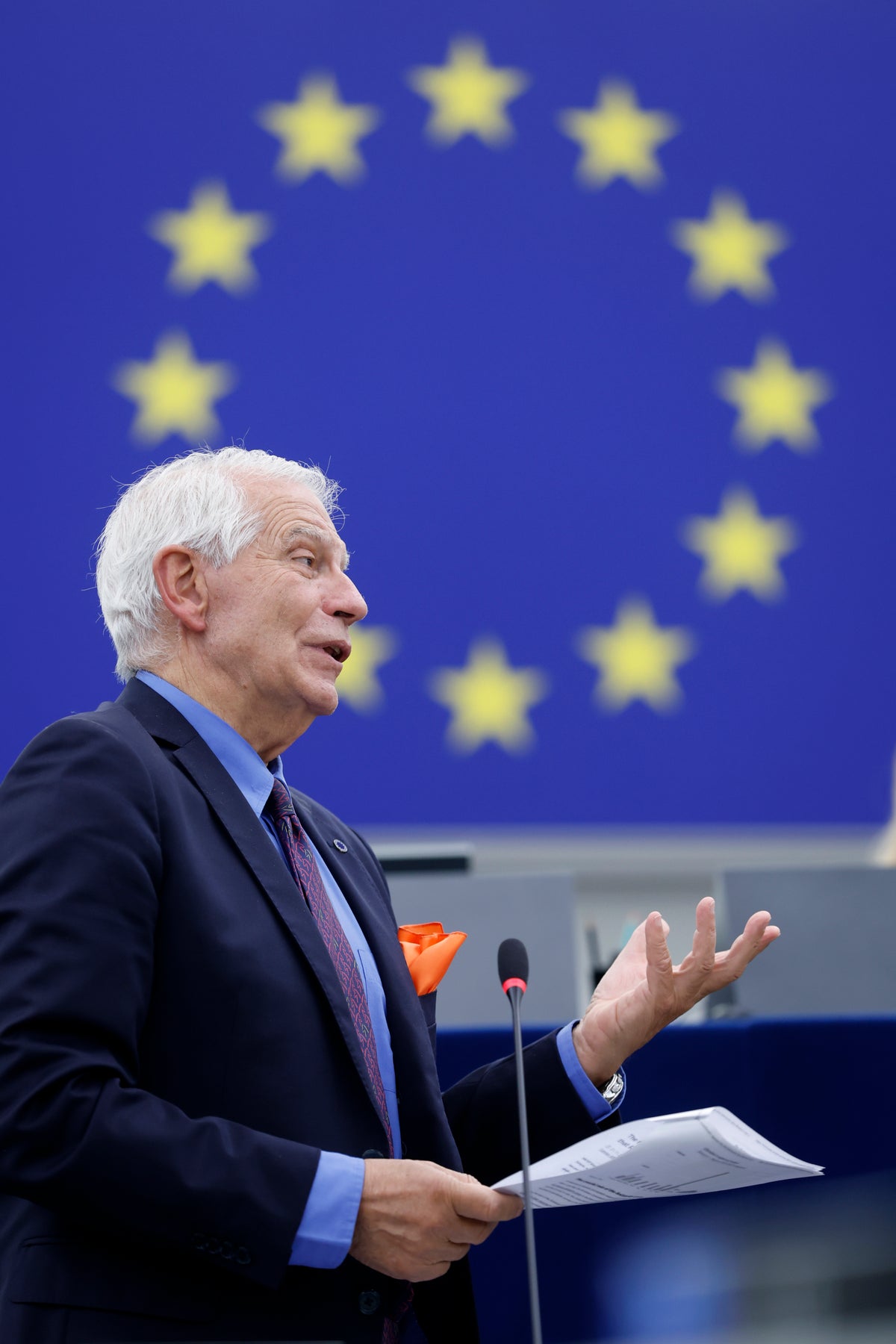
The European Union’s top diplomat on Wednesday said Kosovo and Serbia have reached a deal on a dispute over vehicle number plates, defusing rising tensions between the two Western Balkan neighbors.
EU high representative Josep Borrell posted in his social media page that Kosovo’s and Serbia’s negotiators “have agreed to avoid further escalation and to fully concentrate on the proposal on normalization of their relations.” Serbia will stop issuing license plates with Kosovo cities’ denominations and Kosovo would cease further actions on the re-registration of vehicles.
Talks will continue on the subsequent steps.
Earlier this week Borrell had failed to convince Serbian President Aleksandar Vucic and Kosovo Prime Minister Albin Kurti to reach a deal, further raising concerns about the escalating tensions between the former war foes.
Kurti blamed Borrell for focusing solely on the license plates instead of the full normalization of ties between the neighbors.
Vucic said Kurti was responsible for the failure of the meeting.
The EU-backed Belgrade-Pristina Dialogue, which is aimed at normalizing relations between the neighbors and former foes in the Western Balkans, has been at a virtual standstill for years. The EU warned Serbia and Kosovo last week that they are on the edge of a precipice and must resolve their dispute or face the prospect of a return to their violent past.
Long-simmering tensions between Serbia and its former province mounted again in recent weeks over the Kosovo government’s decision to ban Serbian-issued license plates, matching Serbia’s earlier ban on Kosovo license plates.
Under the ban, about 6,300 ethnic Serbs owning cars with number plates deemed to be illegal in Kosovo were to be warned until Monday, which was postponed with 48 hours after U.S. embassy's intervention. Then Kosovo authorities would fine them for the following two months. Until April 21 they would only be permitted to drive with temporary local plates and not allowed to drive after that date.
On Nov. 5, Serb lawmakers, prosecutors and police officers in Kosovo’s northern Mitrovica region resigned over the move.
The issue of Kosovo’s independence sparked a 1998-99 war in which about 13,000 people died. Serbia launched a brutal crackdown to curb a separatist rebellion by the territory’s ethnic Albanians. NATO bombed Serbia in 1999 to end the war.
Kosovo unilaterally broke away from Serbia in 2008. The Serbian government, with support from China and Russia, has refused to acknowledge Kosovo’s statehood. The United States and most of its European allies recognize Kosovo as an independent country.
NATO Secretary General Jens Stoltenberg has said that the NATO-led mission in Kosovo, known as KFOR, “remains vigilant.”







